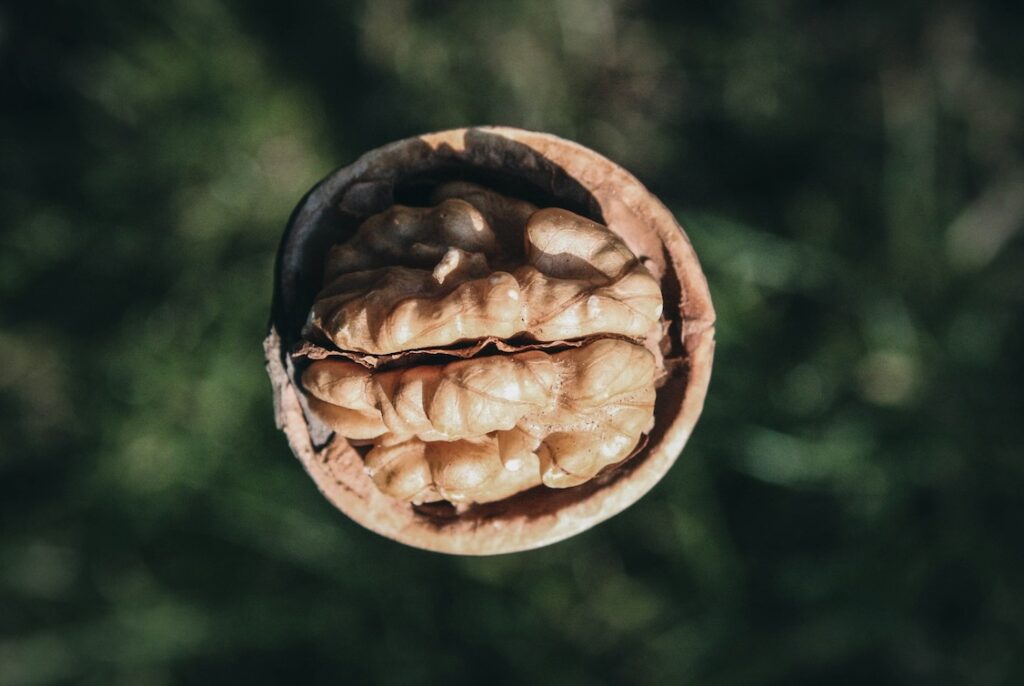June is Alzheimer’s & Brain Awareness Month. And if you think that Alzheimer’s sounds like something you don’t need to think about for many years, think again. Experts believe that the brain changes that contribute to Alzheimer’s disease begin two decades or more before symptoms start! While this is a sobering thought, it also means we can make changes RIGHT NOW to support our brain health—for today and for two decades or so down the road.
According to the Alzheimer’s Association, nearly 7 millions American adults live with this disease. This number is staggering considering that Alzheimer’s ranks as the seventh leading cause of death in the U.S. and is currently the most common cause of dementia. And while there is no known direct cause–or cure–at this time, it is estimated that nearly half (40%) of all global dementia incidence may be attributed to modifiable lifestyle factors.

Lifestyle Factors That Support a Healthy Brain
So what can we do right now to lower our risk for Alheimer’s and other cognitive decline? Here are a few:
- Don’t smoke (or quit if you do)
- Challenge your brain by learning something new
- Get quality sleep, and enough of it
- Move more and get physical activity
- Maintain (or reach) a healthy weight
- Keep your blood pressure in check
- Maintain healthy blood sugar levels
How Diet Can Impact Brain Health
There are a lot of ways that diet can impact brain health. Our diet plays a major role in helping to keep blood pressure and blood sugar levels under control. This may help to keep cognitive decline at bay and reduce our risk of chronic disease, like Alzheimer’s. And certain foods can provide the necessary nutrients to support cognitive health, enhance memory and protect against neurodegenerative diseases.
Here are FIVE FOODS that you can enjoy more often for a healthier brain.
- Vegetables – Dark leafy greens might get the nutrient star spotlight–and they offer a boatload of important nutrients–but all vegetables are important for brain health. Dark leafy greens (think spinach, kale, arugula, bok choy, Swiss chard and collards) provide brain-protecting compounds like folate and lutein. Other vegetables–like broccoli, cauliflower, Brussels sprouts, bell pepper, zucchini, carrots and so much more–provide brain-boosting antioxidants and nutrients, as well. Aim to eat at several servings of vegetables every day and aim for at least one of them to be dark leafy greens.
WAYS TO EAT MORE: Add frozen spinach or cauliflower to protein smoothies, toss kale into soups or pasta dishes, add sauteed broccoli and mushrooms to scrambled eggs or pair red bell pepper strips with hummus or guacamole for a snack. - Berries – Most berries are small but they are mighty. Berries are packed with antioxidants, especially anthocyanins, which have anti-inflammatory benefits and help to reduce oxidative stress and inflammation. Plus, berries are rich in fiber, which helps to keep us feeling fuller longer and stabilize blood sugar levels. Aim to eat berries at least 2-3 times each week.
WAYS TO EAT MORE: Add berries to your morning yogurt or oats, add to your sparkling water or pair with dark chocolate and walnuts for a no-brainer snack or dessert. - Fatty fish – Fatty fish (think salmon, trout, sardines and mackerel) are rich in omega-3 fatty acids. While heart health may be what comes to mind when you think omega-3s, these fatty acids are crucial for brain function at all life stages—from baby brain development to improved cognitive function as we age. Fish is also rich in protein, which helps to stabilize blood sugar levels. Aim to eat seafood at least 2-3 times each week.
WAYS TO EAT MORE: Grill up a salmon burger, add tuna to your tacos or quesadilla, whip up a trout or salmon dip or add sardines to your pasta. - Nuts – Speaking of walnuts, nuts are rich in healthy fats, antioxidants and vitamin E. These nutrients help protect the brain from damage and support cognitive function. In addition to healthy fats, nuts also contain protein and fiber, which help to stabilize blood sugar levels.
WAYS TO EAT MORE: Make nut- and nut butter-based energy balls, enjoy as a snack or add to salads, oats or yogurt. - Spices and herbs – Spices, especially turmeric, contain powerful antioxidants. In fact, curcumin (the mighty compound in turmeric) has been shown to reduce inflammation and promote neuroplasticity and neurogenesis, the ability of the brain to form new neural connections and neurons. This enhances cognitive functioning and can potentially reduce the risk of cognitive decline associated with Alzheimer’s disease. And while turmeric/curcumin receive a lot of attention, herbs like parsley and basil and other spices like cinnamon and many more provide equally important benefits. If spices and herbs tend to be an afterthought, try intentionally adding more to your meals every day.
WAYS TO EAT MORE: Sprinkle turmeric in eggs (you’ll never notice the yellow turmeric!) or on roasted veggies, add to soups and stews or enjoy in a golden latte with warm milk and a dash of black pepper (to even greater enhance turmeric’s potency).

Make Changes Today for a Healthy Heart
And these are just some of the foods that can help support brain health. If you want to learn more about a diet that will reduce the risk of Alzheimer’s disease, check out the MIND diet. The Mediterranean-DASH Intervention for Neurodegenerative Delay (MIND) diet focuses on including more of these, and other, foods in your diet. Created by a leading researcher in this field, the MIND diet has been shown to help Alzheimer’s disease by 53% if followed closely and by 35% if followed even moderately.
By focusing on a diet rich in antioxidants, omega-3 fatty acids, anti-inflammatory foods and brain-supporting nutrients, you can help protect your brain from Alzheimer’s disease and support overall cognitive health. And remember… it’s never too early to start eating healthfully and incorporating other lifestyle factors-like mental stimulation, physical activity, quality sleep and social engagement-to help boost brain health today… and for 20-30 years from now.
PLEASE SHARE: What are your favorite brain-boosting foods? What lifestyle factors do you prioritize for a healthy brain? Please comment below. We’d love to hear from you!
Disclosure: I do provide nutrition consult to the National Fisheries Institute (NFI). However, I received no compensation or benefits of any kind from NFI or any other food organization for this post. All thoughts and opinions in this blog are solely my own.






0 Comments